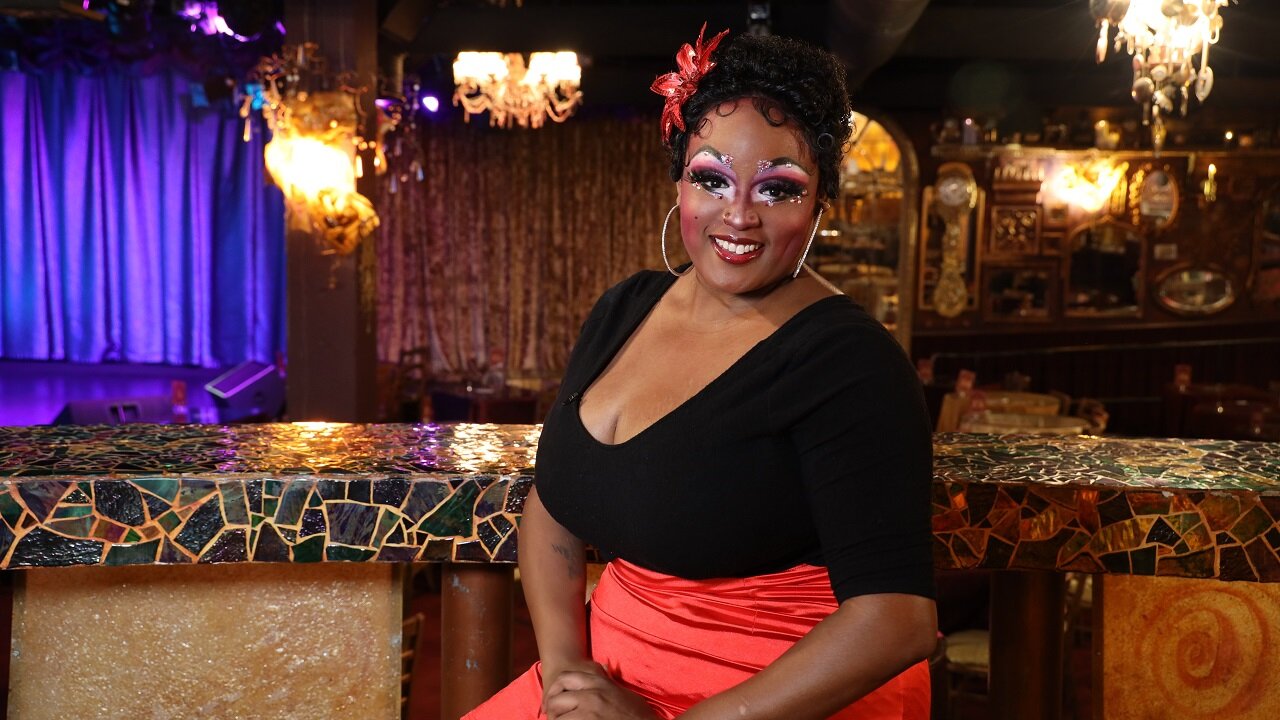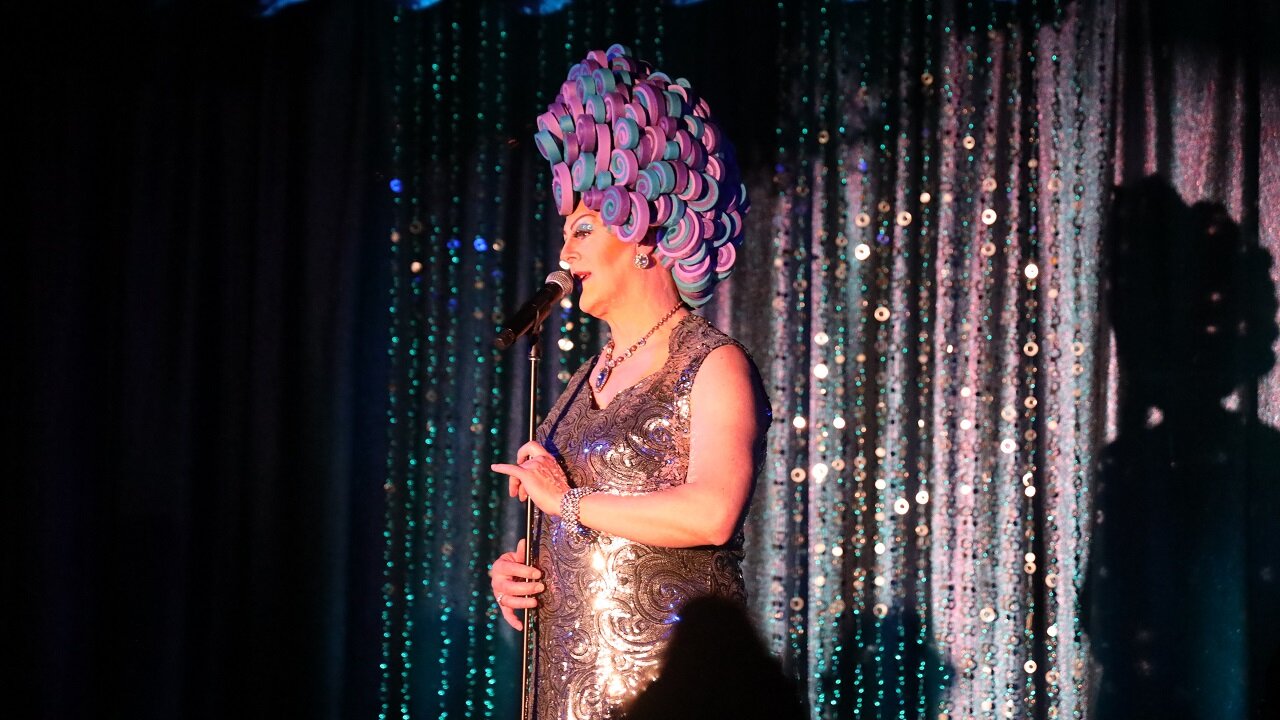Denver drag queens remind us, 'Drag actually saves lives'

DENVER — Heads turn and mouths gape when Shirley Delta Blow enters a room. Her hot pink, curly hair piece, 6-foot-something stature and leopard print robe doesn't exactly blend into a crowd. And Delta Blow wants to be anything but boring.
“One of the things I think about drag is its creativity,” Delta Blow said. “It’s like dress up, it’s exploring things.”
For Delta Blow, drag is an outlet to explore an alternative persona. Outside of drag, she’s a third-grade teacher and an adult male living an otherwise “conventional” life.
But when she takes the stage at Clocktower Cabaret — a part-burlesque, part-drag show, Delta Blow is a larger-than-life comedian, a showgirl and, most importantly to her, an advocate for anyone who doesn’t fit the mold.
“As drag queens, we’ve always been on the front of the gay rights movement,” Delta Blow said. “We’ve always been activists.”
The Stonewall Riots — largely recognized as the beginning of the LGBTQ liberation movement — are credited to several drag queens who were tired of police harassing them inside a New York City gay bar and fought back, kicking off decades of fighting for the community.
Fifty-four years later, activists said the fight is more prominent than ever, as Tennessee has banned drag shows in public spaces and 14 other states have bills in their legislatures attempting to do the same.
“It’s a classic technique of ‘we’re going to get everyone enraged,’” Delta Blow said.
States attempting to pass bills banning drag and discussions of LGBTQ issues have pointed to protecting children as the rationale. If the lawmakers pushing anti-drag bills truly cared about children, Delta Blow said, she wishes they would invest more into actual issues facing children, like mental health care, school funding and easier access to childcare for working parents.
“Drag actually saves lives,” Delta Blow said. “Queer kids who don’t have a role model in their family or their social circles will see someone like me, who is kind and compassionate and is living my life fully and joyfully and they can say ‘it is possible for me to live my full life.’”
Though Colorado is considered progressive on LGBTQ issues, several performers in the state said the fight against hate must include everyone.

Coco Bardot performed at Clocktower Cabaret, a music, burlesque and comedy show in Denver.
“It’s definitely a dog whistle. They’re using the veil of drag queens and taking it over because they’re going to start attacking different communities,” said Coco Bardot, another queen performing at Clocktower Cabaret, a music, burlesque and comedy show nestled beneath Denver’s historic D&F Clock Tower. “Right now, it’s drag queens, next it’ll be gays, then we’re back to Black folks and it just regresses, and that’s terrifying to hear.”
Bardot said she brings her 3-year-old daughter to her shows as well as other LGBTQ events because she wants her daughter to see happy adults expressing themselves.
“We all have the freedom to raise our kids how we want, but I think I have enough awareness to know that my daughter seeing high heels and a wig isn’t going to hurt her,” Bardot said. “Drag is art and fashion and love and politics and rebelling and jazz and rock. It’s everything rolled up into a ball and exuded through a person to the world.”
For Bardot, drag is no different than athletes putting on a uniform or actors wearing costumes.
“Cosplayers cosplay because they like to dress up, football players dress up in their pants and shoulder pants for their art,” Bardot said. “Everyone needs an outlet, and for drag, it’s the makeup and the clothing and the people we meet.”
When asked to define “drag,” Bardot struggled to do so, as her persona does not fit the typical. She is a cisgender woman and uses drag to embrace hyper-femininity. Before entering the stage, Bardot covers her face in sparkly makeup, dresses her ears with large gold hoops and takes the stage in a flowy purple gown. While drag is typically imagined as men accentuating femininity, Bardot said the art form has given her a space to embrace her femininity and show it off.
“Growing up, I had Tina Turner and I had Janet Jackson, and they were these larger-than-life personalities getting to be who they want on stage,” Bardot said. “I can pretend to be Tina Turner for the night and live my fantasy and be that person that the next person sees and is inspired by.”
Inspiration and expression are at the heart of what both Bardot and Delta Blow do with each performance.
"For me I do lots of different things in drag, I entertain, I host bingo, I do drag story times with kids and, you know, all those things are important because we get to show what it's like to be a big grown up queer person living in the world," explained Delta Blow. "This is one idea of what it might look like."

Alison Berg is a multimedia journalist at Rocky Mountain PBS. You can reach her at alisonberg@rmpbs.org.
William Peterson is a senior photojournalist at Rocky Mountain PBS. You can reach him at williampeterson@rmpbs.org.
